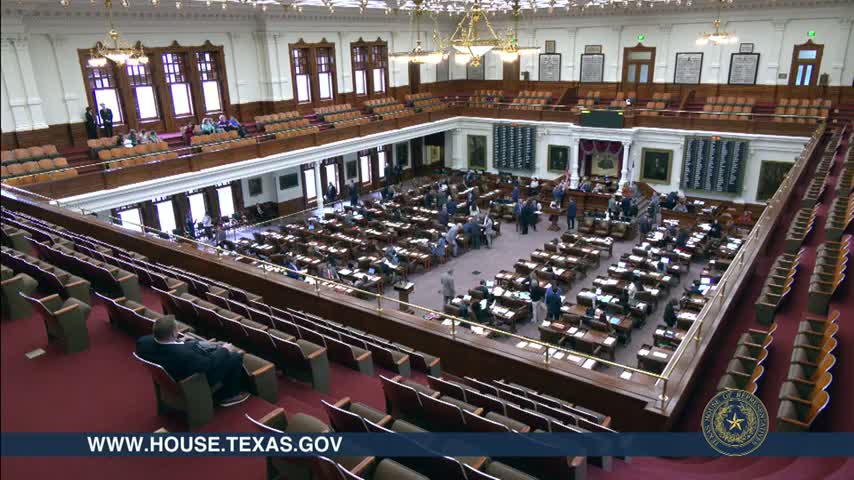House advances sickle cell disease registry bill to engrossment after emotional floor debate
Get AI-powered insights, summaries, and transcripts
Subscribe
Summary
Lawmakers on the Texas House floor voted to pass House Bill 107 to engrossment after members described how a statewide sickle cell registry would improve data, research and care coordination; final passage will require further action.
House Bill 107, which would create a statewide sickle cell disease registry in Texas, was passed to engrossment by the Texas House after a floor exchange in which the bill’s author described the condition’s health impacts and other members asked questions about the bill’s purpose and intended use.
Representative Sydney Simmons, the bill’s author, told the chamber that HB 107 would establish a centralized Texas registry to help researchers, clinicians and lawmakers better understand the prevalence and needs of people living with sickle cell disease. Simmons said the measure is intended to improve access to care, inform research priorities and return data to the Legislature so policy responses can be better targeted.
Members who questioned Simmons emphasized the registry’s data value. One member asked whether the state currently has “its arms around” the issue; Simmons replied that it does not and argued the registry would be a step toward ensuring “research, support, and resources” for affected Texans. Simmons also said the measure had previously cleared its committee hearings unanimously in both chambers and that the registry would provide data back to the Legislature for policy development.
Simmons described personal motivation for the bill, identifying her daughter as one of the Texans affected by sickle cell disease and recounting how the condition causes recurrent pain crises, organ damage, infections and other lifelong complications. She also said that adults with sickle cell sometimes find their symptoms discounted by providers, stressing the registry’s potential to prompt better training and resources.
Several members congratulated Simmons on her first bill and questioned her about the bill’s details and intended outcomes. Representative Simmons thanked previous lawmakers who worked on the issue, including Representative Jarvis Johnson, and said the measure was a priority to improve care across the state.
On the vote before the full body, the House passed HB 107 to engrossment; the clerk recorded the passage to engrossment and the bill will return for third-reading and final passage at a later date.
The debate on the House floor was limited to the bill explanation and questions; there were no recorded amendments on the floor during this exchange. The bill’s next procedural step is engrossment and subsequent scheduling for third reading and final passage, which the transcript shows had not yet occurred during this floor day.
Votes at a glance for this action: HB 107 — passed to engrossment (vote to engross: passed; final passage: not yet recorded).
